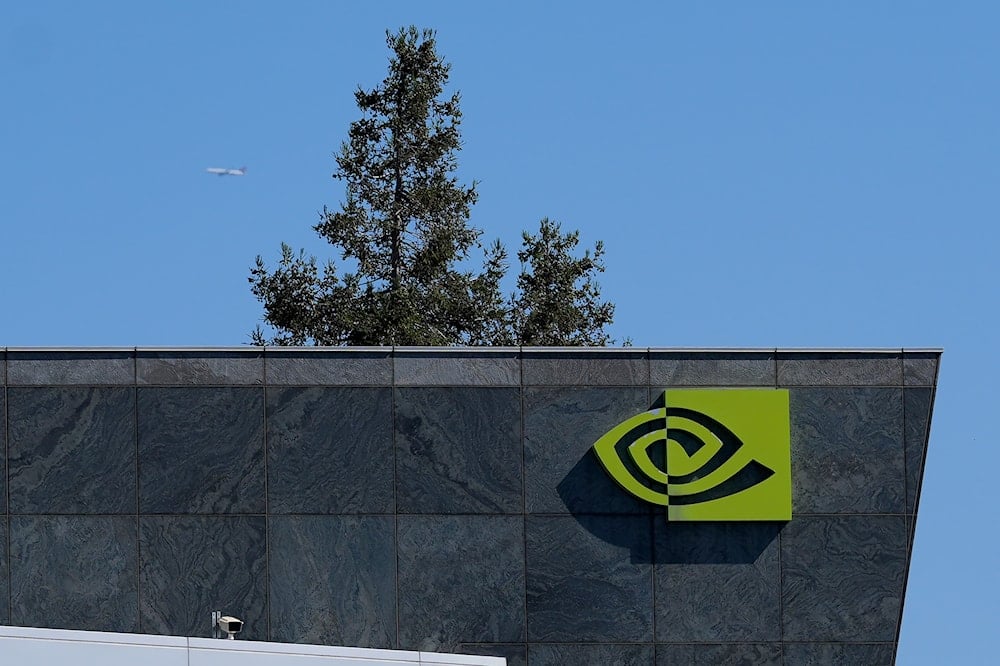US allows Nvidia to sell banned H20 chips to China
The US has approved Nvidia’s H20 chip exports to China, easing AI restrictions but keeping other advanced processors under a ban.
-

A sign is displayed on an Nvidia office building in Santa Clara, Calif., Wednesday, Aug. 7, 2024 (AP)
The US Commerce Department has begun granting licenses to Nvidia, allowing the company to export its H20 chips to China, according to a US official who spoke to Reuters on Friday, which eliminates a major obstacle for the AI leader to re-enter an important market.
The US last month overturned an April prohibition on the sale of the H20 chip to China, after Nvidia had specifically designed the microprocessor for the Chinese market to adhere to the Biden administration's AI chip export restrictions. The chipmaker has cautioned that these restrictions will cut its sales by $8 billion in the July quarter.
Jensen Huang, Nvidia's CEO, met with US President Donald Trump on Wednesday, two sources familiar with the matter told Reuters. Both Nvidia and a spokesperson for the White House declined to comment.
In July, the company stated that it was submitting applications to the US government to restart sales of the H20 graphics processing unit in China and had received assurances that the licenses would be granted soon, though it remains unclear how many licenses have been issued, which companies are approved to receive the H20 shipments, or the total value of the authorized exports.
In April, Nvidia revealed that it anticipated a $5.5 billion loss from the restrictions, but later in May, the company reported that the actual first-quarter charge tied to the H20 limitations was $1 billion lower than initially projected, as it managed to repurpose some materials.
US restricts AI chip exports to China
While the H20 chip has received export approval, Nvidia's other advanced AI processors remain restricted from being shipped to China, as successive US administrations have continued to impose limitations on cutting-edge semiconductor exports to hinder Beijing's progress in artificial intelligence and military technology development.
As part of tightening US-China tech tensions, American lawmakers have proposed requiring Nvidia and other AI chipmakers to embed location tracking and remote-disable features into their products.
While the proposals are framed as safeguards against unauthorized use, Beijing views such measures as potential vectors for foreign surveillance and control, particularly when implemented in semiconductors destined for Chinese infrastructure or research facilities.
Although these restrictions have constrained US companies from fully capitalizing on China's surging demand as one of the world's biggest semiconductor markets, the Chinese market continues to serve as a significant source of revenue for American chip manufacturers.
Huang has warned that Nvidia's market leadership could weaken if it loses access to the Chinese market, where domestic developers are increasingly being targeted by Huawei Technologies, with its locally-produced chips, while the company reported in May that the H20 chip had generated $4.6 billion in first-quarter sales with China contributing 12.5% of its total revenue during that period.

 3 Min Read
3 Min Read








